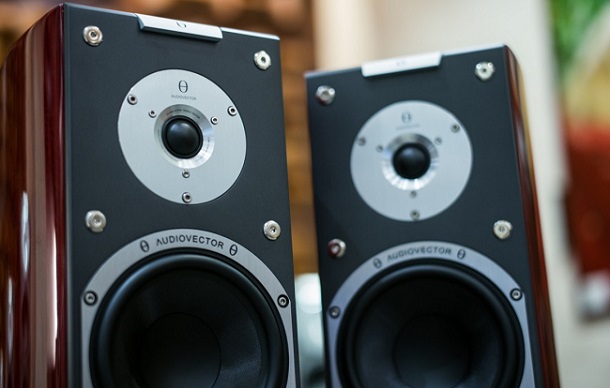Bookshelf Speaker - Analysis and Buying Guide - 2023
Few things make as big a difference when watching movies or listening to music at home as a valuable set of speakers. Dialogue, action, suspense, soundtracks, or those soulful notes from your favorite songs are amplified and enhanced by quality speakers.
For many buyers, bookshelf speakers are an ideal choice. On their own, many models are capable of impressive sound quality, working well in situations where space is at a premium. Additionally, bookshelf speakers are a great way to augment an existing sound system, improving overall quality and covering audio dead spots.
Whatever your needs, check out our guide to see what to look for when choosing a set of bookshelf speakers, what to avoid, and tips on how to get the most out of it.
Key Considerations
An important factor to consider is whether a set of bookshelf speakers has built-in amplification. If you're looking for a simple solution to your audio needs, you'll want to buy a set of speakers with a built-in amplifier. If you already have a sound system set up — including a stand-alone amp — and you're looking to upgrade it, unamplified speakers can save you some money while you get the job done.
The size of the speakers compared to the room they will be used in is another important consideration. For example, a small set of speakers might work perfectly for playing background music in a home office, but fall short in the living room when watching your favorite action movie. Similarly, speakers that would work well in that scenario can overwhelm a smaller room. Therefore, it is important that the speakers you buy match the room in which they are to be used.
Characteristic
When looking for a good set of bookshelf speakers, one of the main features to look for is the type of material the internal components are made from. Few things will impact sound quality as much as construction materials.
For example, the stiffer the material used to create the woofers, the longer the speakers will last and the better they will sound. Polypropylene is commonly found in mid-range speakers, while aluminum and titanium are used in higher-end models. The same goes for the material surrounding the woofer. Cheaper models use foam or fabric, which breaks down and is susceptible to moisture. Rubber is a superior material used in more expensive models which, again, lasts longer and produces better sound.
Different speakers have different specifications, which will greatly affect their performance :
- Hertz :
Take a look at the hertz rating of the speaker. Generally, the lower the number, the better the speaker is capable of producing a deep bass sound.
- Power or Watts
The higher this number, the more power the speaker can handle, especially in short bursts. Some experts recommend using the maximum recommended wattage as the minimum wattage to use when pairing your speakers with an amplifier. Too often, speakers are ruined by using too little power and compensate by playing the volume too loud, damaging internal components.
- Drivers
Most speakers have two drivers: a tweeter to produce high-frequency sound and a woofer to deliver bass. Higher quality speakers will have a third midrange driver and will offer the best quality. That said, you're much better off buying a quality set of speakers with two drivers than a cheap set of speakers with three. The quality of the materials and technology used to make the speakers will result in better sound than simply adding a cheap third driver.
Tips
Contrary to their name, bookshelf speakers should not be placed in a closed bookcase. Doing so will cause the sound to resonate and echo off the shelves. In fact, many bookshelf speakers sound best when placed a foot or two away from a wall or surface. So try to place your speakers on top of your bookshelf, on a dedicated stand, or on a table.
Keep the bookshelf speakers at ear level. Having them too high or low will prevent them from achieving tonal balance.
When the speakers are placed, they should be positioned at approximately the 10 o'clock and 2 o'clock position in the room, angled to cover the listening area.
Buy a set of speakers that fit your design and decor. There's such a variety of shapes, sizes and exterior materials available that there's no reason to settle for a set of speakers that stick out like a sore thumb from their surroundings.
FAQ
Que. Can I use bookshelf speakers outside, like on my patio?
Ans. The short answer is that it depends on the speaker. There are speakers designed to be waterproof and weather resistant, making them an ideal choice for outdoor activities. However, even with these types of speakers, it's important to remember that they're weatherproof, not weatherproof. They should be in a somewhat sheltered setting, such as a covered patio or gazebo.
Que. Can I connect multiple audio sources to the speakers?
Ans. Often the answer is yes. Many bookshelf speakers have multiple inputs so you can connect more than one device.
Que. Can I buy bookshelf speakers with wireless support?
Ans. Of course you do. In fact, many manufacturers not only offer wireless support, but also tout their speakers as having lossless wireless support, ensuring that your audio experience doesn't suffer from comfort.
Read More :

